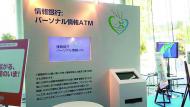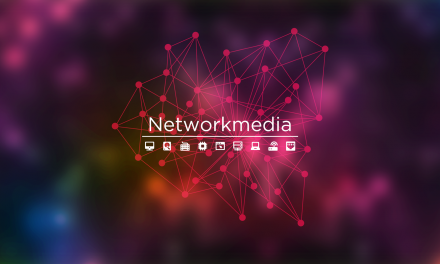Today, our Internet activity—including our searches and purchases—is readily exchanged and accumulated by both vendor sites and SNS services. Ideally, each of us would be able to monitor this personal information that had been collected without us knowing, decide which institution to entrust this information to for safe management, and choose what we want to make public in a way that benefits us when we use the Internet. Professor Hideki Sunahara’s “Information Bank” Real Project explores the mechanisms to do so.
In July 2014, a consortium was established as an industry-academia partnership to bring research institutes, such as KMD and the University of Tokyo, together with companies including NEC, Fujitsu, Dentsu and Dai Nippon Printing to begin creating an institution for safe, secure information management as a public good. The word “bank” in the name highlights the fact that this will be a public service provided by the private sector. Just as the Internet was conceived and developed by non-profit organizations in the private sector, the project wants to develop a neutral, public infrastructure that is led by the private sector rather than government. The aim is to allow the individual to view the information that has been collected about them and make dynamic decisions about which to keep confidential and which to publish. Eventually, the project envisions multiple information banks, among which users can choose the balance of protecting and of utilizing their information that most suits them.
The project reaches beyond computer security to examine other facets of data utilization, including social designs, legal and policy frameworks, and its impact on society. Dr. Kazue Sako, Senior Engineer at the NEC Cloud System Research Laboratories and a participant in the Information Bank Consortium, is ambitious about what the collaboration can achieve. “There is a passion at KMD for improving the networked society. The professors experienced the early years of the Internet and can provide advice not only on technology, but also on the legal and social requirements. I look forward to working together to create an approach that will demonstrate to society the wonderful future we can create with these mechanisms,” she says.
The spread of smartphones will continue to expand services that are based on the information they collect. Likewise, big data will also become more important to corporate activities. The information bank will be crucial infrastructure in the future; it’s a way to alleviate the fear of personal information being collected without one’s knowledge, which allows people to live with greater security and peace of mind. The Information Bank Real Project is an excellent fit with KMD due to our focus on innovation that combines these four components; technology, design, policy and management.


